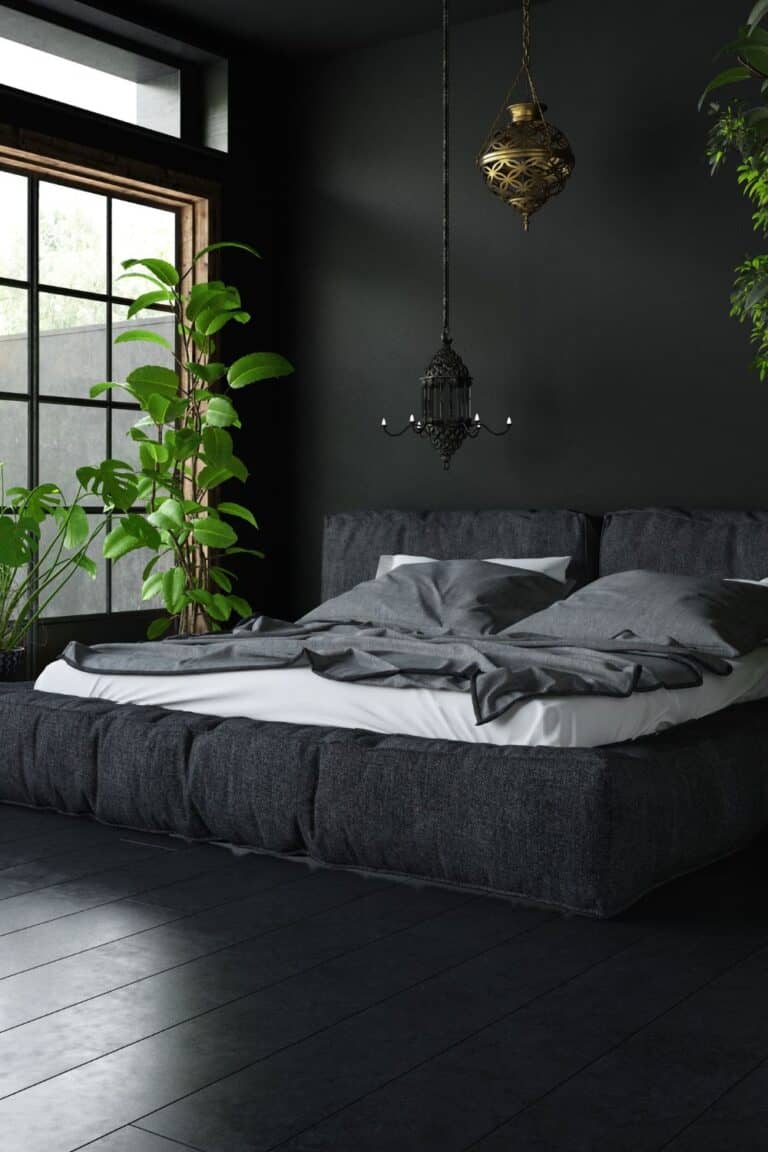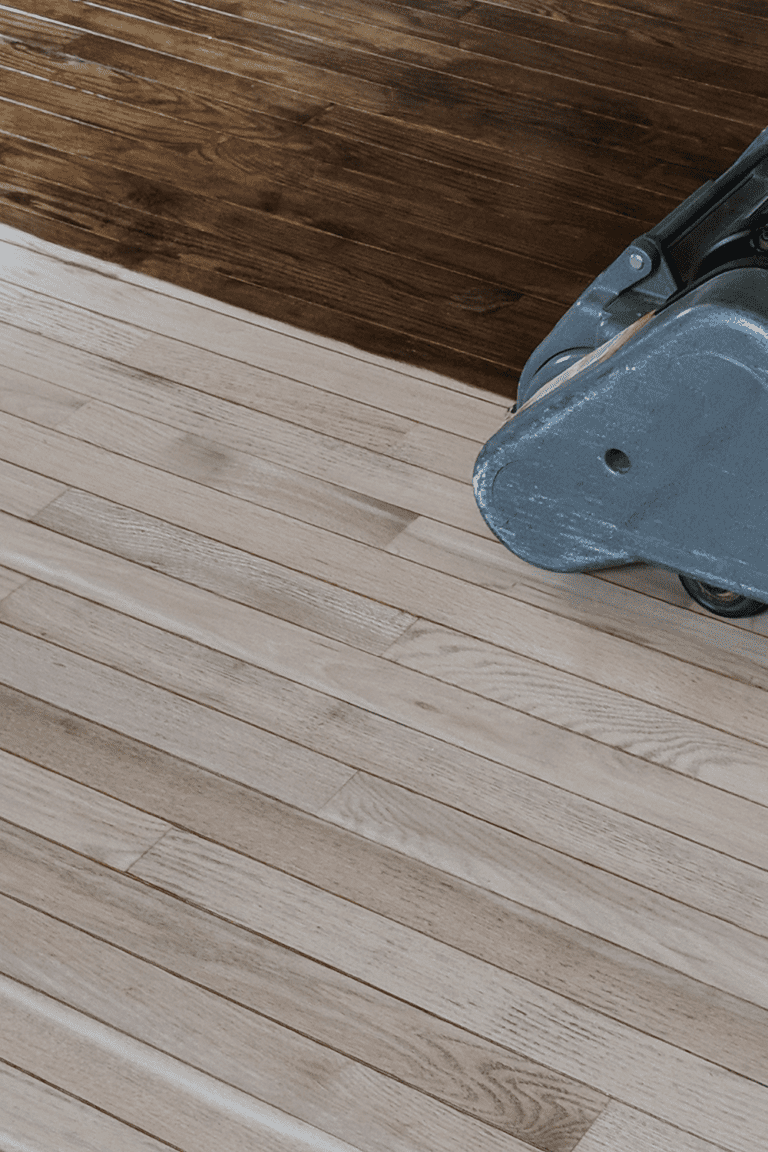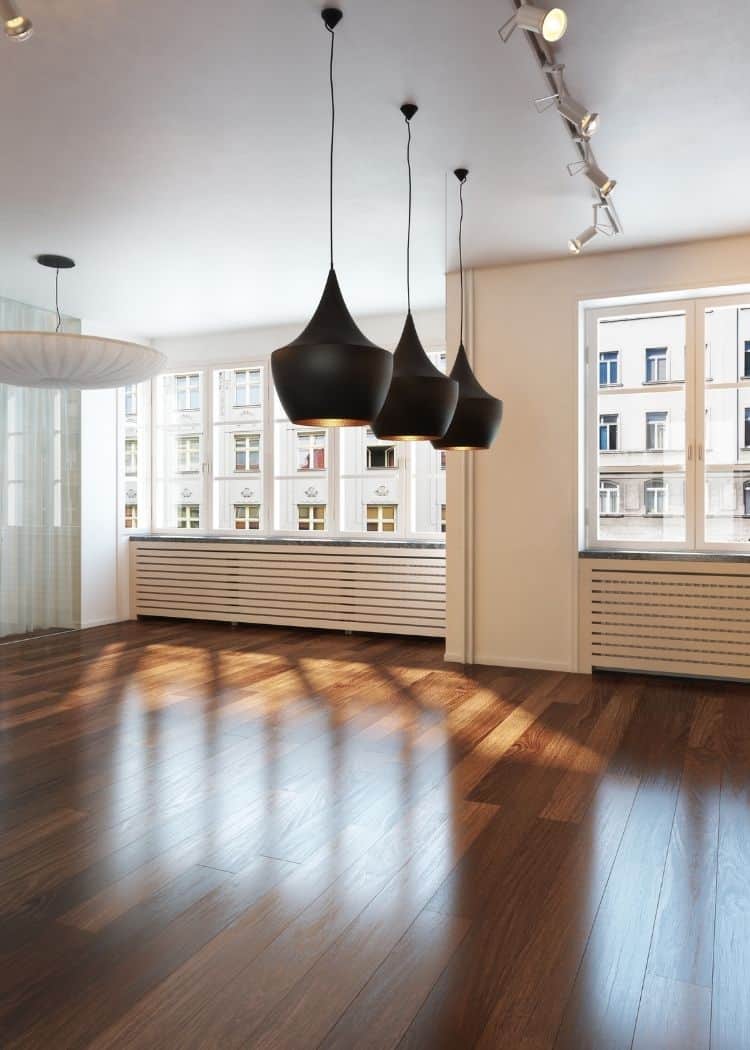Polyurethane Is Not Waterproof. It Is However Water Resistant.
No, polyurethane absolutely does not make your hardwood floors waterproof. Polyurethane is not waterproof and don’t confuse it with being water-resistant. It does in fact make your hardwood floors water-resistant. Polyurethane provides a synthetic hard coat on the surface of your floors that simply repels water. Polyurethane is a protective coating that is designed to protect the flooring from scratches.
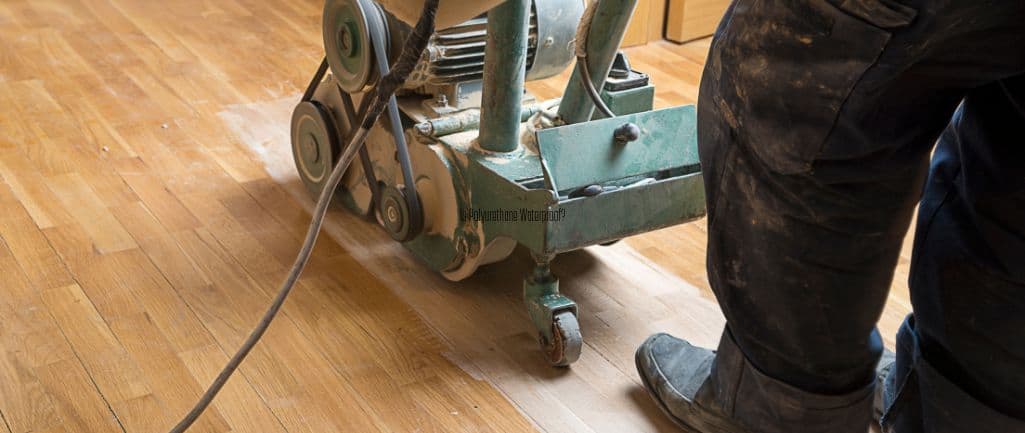
You will need to apply several coats of polyurethane to obtain sufficient coverage. Polyurethane has minute holes in it thus the need to apply several coats. Also, keep in mind that wood expands and contracts with various temperatures so your flooring is always in movement.
At a minimum, we recommend three coats of polyurethane. The goal is to make the polyurethane stronger as well as more cohesive. The overall protection is increased.
Does Polyurethane Waterproof Wood?
Using polyurethane as a topcoat on hardwood floors will provide the floors with a hard protective outer coating that will repel water. The polyurethane coating will prevent water from seeping into the wood. However, it is not waterproof. Thus, if you spill a bucket of water on your hardwood floors, you need to get the water up as quickly as possible.
This post may contain affiliate links, ie., I earn a commission if you decide to make a purchase and sometimes if you just click on a link at no additional cost to you. Please read my Disclosure Policy for more info.
Does Polyurethane Protect Your Hardwood Floors From Water?
Water-based polyurethane drying times vary from as little as 2 hours. After this, you should be able to touch the surface. Dry time should be used to measure the time between coats of polyurethane. I do not recommend that you use the space or reintroduce traffic to the flooring that you just finished. It will take up to 21 days for water-based polyurethane to cure.
How To Make Hardwood Floors More Waterproof?
You can not make your hardwood floors 100% waterproof, but you can make your floors more resistant to the damage of water and liquids Here are a few ways to make your hardwoods more resistant.
1. Hire Professionals
Take my word for it, this is not a DIY product. Though you may be tempted to believe you can sand and refinish your own floors, you will end up with a mess. You will not save any money and you may ruin your floors beyond repair. Please hire a qualified professional.
2. Wipe Up Water Spills Quickly
It only takes a few minutes to damage your floors from a spill. The quicker you wipe up any liquids on your hardwood floors, the less chance you have of damaging your floors. Be mindful of entryways where water or snow can be tracked indoors. As a real estate broker, I’ve seen a ton of hardwood floors that were damaged because homeowners simply didn’t put down a simple protective rug.
Do not use steam mops on your floor as they will unwittingly cause damage. You should clean your floors on a regular basis. I run my Irobot weekly. These are the other vacuums that I recommend for hardwood floors.
3. Use White Oak Flooring
The best type of flooring to use for your hardwoods is going to be White Oak. White oak is naturally resistant to water It is the preferred flooring by many industry experts as its overall structure is resistant to water. Oakwood also contains a high level of tannic acid which makes it an extremely durable wood choice. Often times you will see white oak used in making a variety of boats.
4. Add Several Layers Of Polyurethane
At a minimum, I recommend at least 3 coats of polyurethane. Be careful with overdoing it as the end result may be a yellowing of your floors. Three coats are all you need and make sure you allow adequate time between coats based on the manufacturer’s recommended dry time.
5. Avoid Soft Woods Such As Pines
Wood that is hard is more durable than softer woods such as pines. Bamboo flooring is one flooring that I don’t recommend at all. Bamboo is actually grass and not wood at all. It contains a lot of pores and will quickly mildew when exposed to water.
6. Recoat Your Floors
Just like everything else in your home, your floors need regular maintenance and this includes having your floors recoated every few years. As a military veteran, I know a thing or two about buffing floors. Have a professional come in clean and buff your floors. Then you can add an additional coating of polyurethane to your floors. This will prolong the life of your floors and add additional life to your floors.
Consider doing this in heavy-traffic areas. to your existing.
7. Use Approved Cleaning Products For Your Type Of Floors
Use recommended cleaning products for your
8. Avoid Using Waxes That Result In A Build-Up
There are so many products that claim to bring a brilliant shine and sheen back to your floors. Be extremely selective in what you choose to put on your floors as many products actually dull your floors over time as they contain waxes. Make sure that the products that you select don’t have an adverse reaction to your polyurethane. I highly suggest that you stick with Bona.
Read More On The Best Brand of Polyurethane Here.
Does Polyurethane Protect Your Wood From Water Damage?
Yes, all polyurethanes provide a level of protection as a thin synthetic coating is between the water and the wood material. Thus it makes it harder for water or other liquids to seep into the wood. This is not the same as being waterproof. Your floors have a high level of protection than say a wooden dresser. We’ve all seen a watermark on a dresser, the same can happen to your hardwood floors if you are not careful.
Is Water-Based Polyurethane Waterproof?
Water-based polyurethane is not waterproof. As indicated all polyurethanes will provide a protective coating. The protective coating is not the same as being waterproof.
Does Staining Wood Make It Waterproof?
Unfortunately no, staining your floors just adds color to it. If you are refinishing your floors or having new floors installed, you will want to protect your floors with polyurethane. Staining your floors is one step in the process. Once you stain your floors and allow them to dry, you then need to come back and apply the polyurethane to protect your floors.
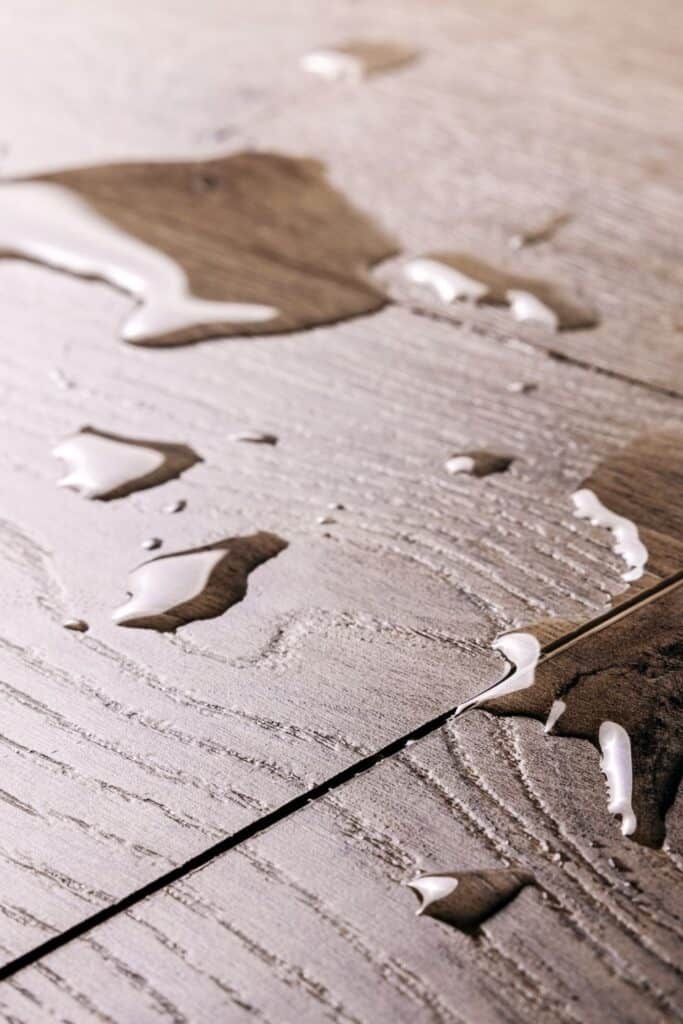
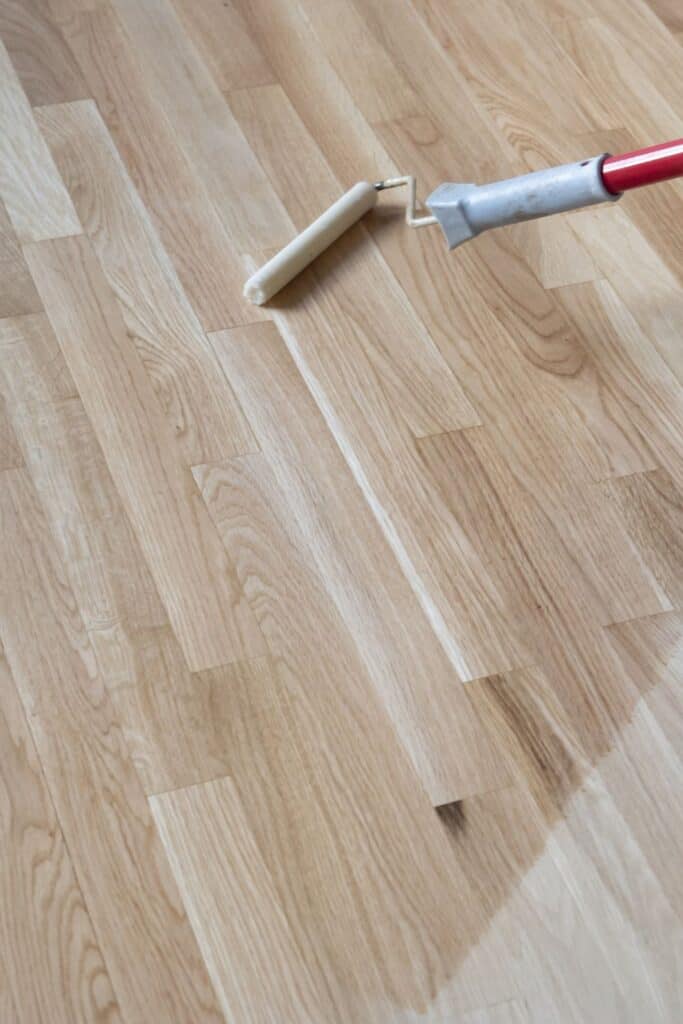

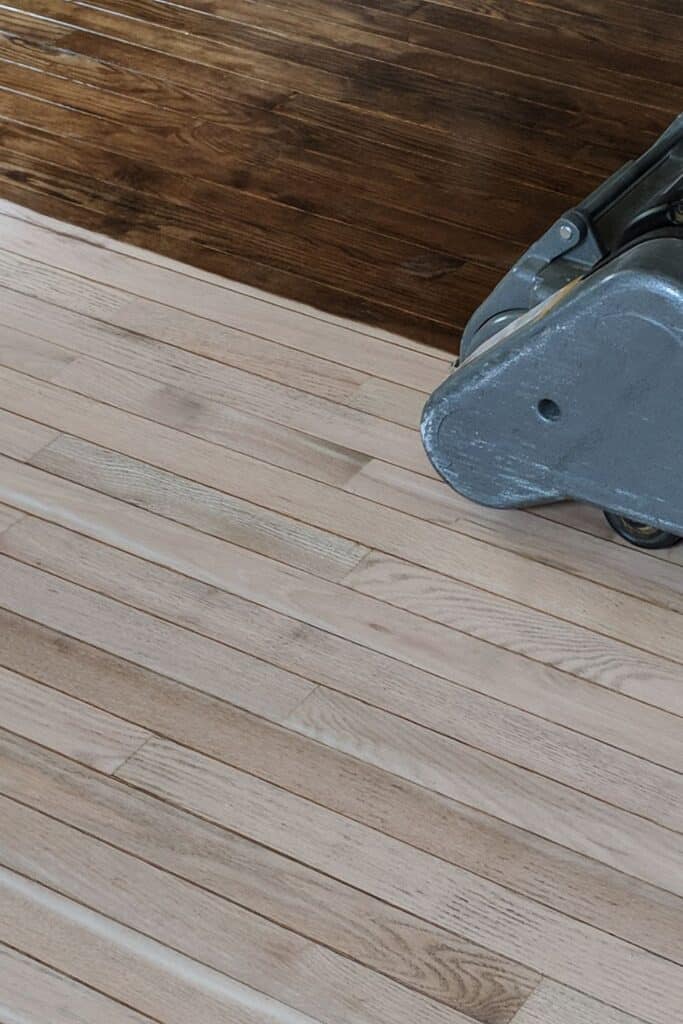
Final Thoughts On Polyurethane Being Waterproof
You absolutely need to protect your floors with a coating of polyurethane. However, it will not make your hardwood floors waterproof. It is simply a layer of protection from dings and scratches. Protect your floors by doing a few simple things such as cleaning your floors on a weekly basis. Removing your shoes to prevent dust and debris from damaging your hardwoods. Make sure that you clean up all spills immediately and take precautions to not place your pet’s bowl of water directly on your hardwoods. Don’t forget to redo your floors with the screen/buffing every few years.
Useful Products That Will Prolong The Life Of Your Hardwood Floors
If you found my tips & advice useful and helpful, then feel free to buy me a cup of coffee and support my blog!
Related Polyurethane And Refinishing Hardwoods Post
- 13 Best Polyurethane For Hardwood Floors
- Water Based Vs. Oil-Based Polyurethane Floor Finish -The Pros & Cons
- How Long Does It Take Polyurethane To Dry?
- Which Polyurethane Doesn’t Yellow?
- Hardwood Flooring Trends
- Best Vacuums For Hardwood Flooring
